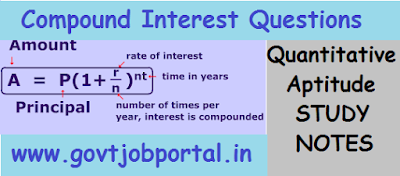Significance of
English Section in SBI Clerk 2018 Exam
Hello dear students as you
all are well aware about the SBI Clerk Prelims Exam2018 and the
date has already been rearranged on 23rd, 24th and 30th of June 2018. We know as you
people are preparing hard for the exam so we would like to inform you all that
there are major changes in the pattern of SBI Clerk Examination that
will be observed this year are the introduction of section timing for the
Prelims exams too and elimination of sectional cut off.
Previously students used to save their timing by spending a maximum of 15 minutes on the English Section and the time they would save this way was used up on solving the complex questions of Reasoning Ability and Quantitative Aptitude Sections which are thought to be more time-consuming. But from now this trick is not going to help you anymore because you have to spend 20 minutes on each of the three sections that means 20 minutes out of total 60 minutes have to be given exclusively to English Section as per the SBI Notification. But don’t be disappointed because there is a silver lining in every dark cloud, isn't it? So, why to look at the dark side of a thing rather to look at the bright side of it. Focus on the positive attitude of everything. As this way you have the enough time to spend on the English section to and you can score best in English Section as you will enough of time to deeply go through the questions and thus crack the questions with a higher accuracy rate.
So students don’t be disappointed
because there is always a solution to every difficult situation as somebody had
said “when there is a will there is a
way”. The one who desire anything he
had to chase that thing. Always use the opportunities and never make excuses. Now
you have to make the strategies according to the examination pattern as you
have enough time for English section that is20 minutes for 30 questions so why
not to have a full command on English language. Deeply go through the English grammar,
comprehension, reading section etc. learn the things from their base; prepare
the things like a master. So for helping you in this we are providing you some
useful tips that
can help you in making a command on English section for SBI Clerk 2018
Examination:
·
Put your practice
more and more on solving the English questions with the help of different
Mobile Applications as you all have smart phones.
·
Clear your basics
of English language and learn the things from their roots because as your
basics will be clear I am sure you are going to rock. You still have 2 months
to grip the maximum of the nuts and bolts of this language so work hard and
make the best use of these 2 months and practice most of the questions so you can
manage to attempt the maximum number of questions in this section.
·
Those students
who are having a weak hand in English grammar can attempt the reading comprehension
first as you have the enough time for reading the paragraphs thoroughly, understand
it well and then solve the questions. As there is no extra need of grammar
knowledge in solving the reading comprehension section, one has to read it and
to comprehend it by using his/her common sense.
·
In reading
comprehension section you have to keep in mind to solve the question first
based on vocab and phrase and after solving these go through the sections which
need deep penetration.
·
For the cloze
test these subjects should be on your finger tips such as subject-verb
agreement, preposition, and verbs. These topics are going to help you in solving other grammar questions also. So focus
on these topics and work hard to have a mastery on this.
·
For boosting up
your vocabulary you have to work on the newspaper. Read a good newspaper
regularly and the new words which you come across note them in a diary and try
to use them in your daily life routine, there is no best way to increase your
vocabulary other than this. Try this on a regular base and this will help you for
sure.
All
the best to all the participants. Work Hard along with smart work.



















